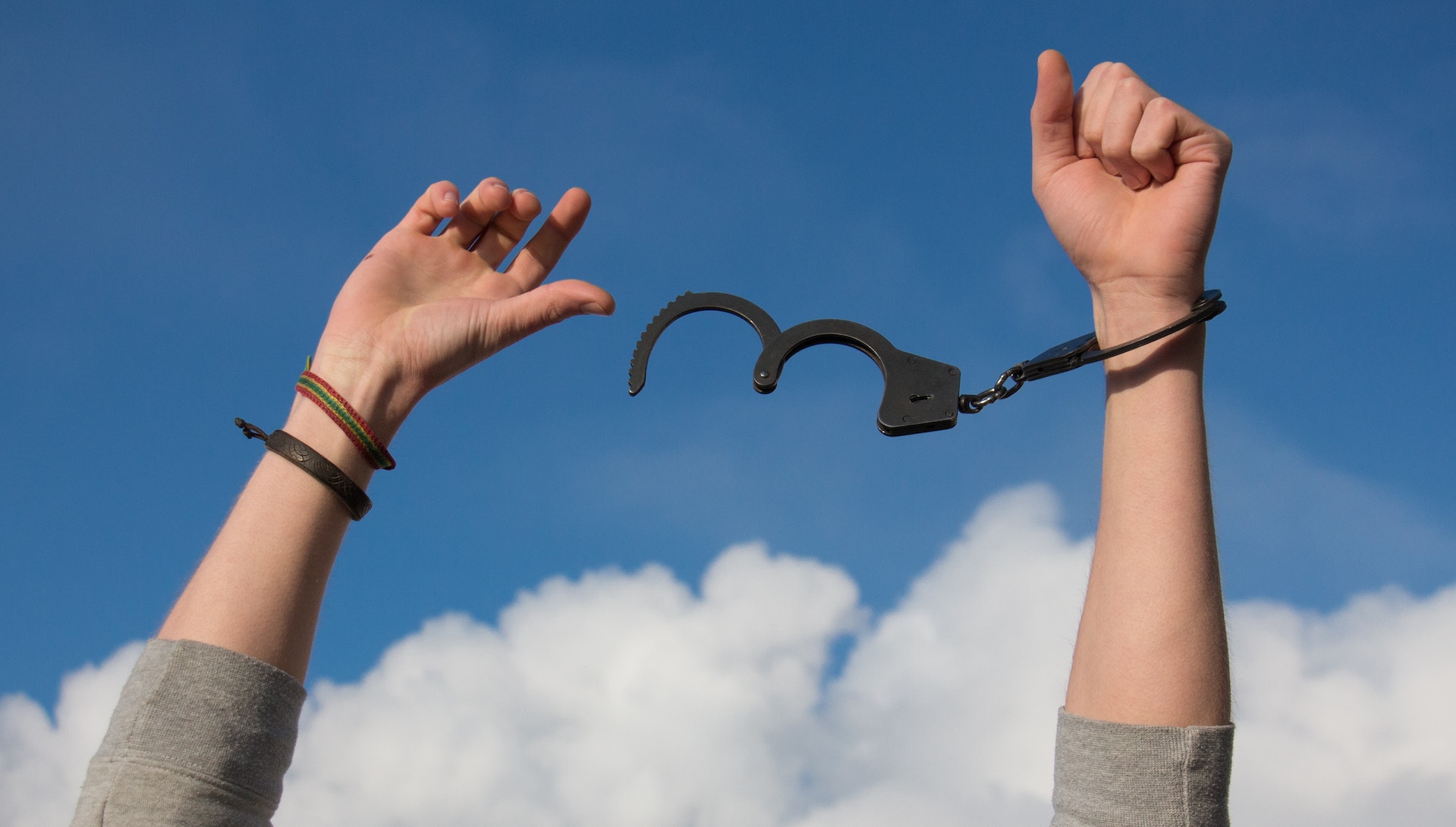

In today’s fast-paced world, when time is scarce, managing our schedules effectively is critical — both personally and professionally. And that’s your calendar comes into play.
Today, calendars are used for more than just keeping track of appointments. Rather, it has become a powerful ally that empowers us with flexibility and freedom.
The problem is — many of us feel like our calendar controls us. It’s like you’re always running from one meeting to another. In addition to your endless to-do list, your weekends are filled with social obligations. Because of this, you cannot relax or do what you really want to do.
You’re not the only one. Many people feel trapped by their calendars and unable to take advantage of life’s opportunities.
Imagine if your calendar could create freedom for you. Why not use it to schedule time for the things you find most important, without feeling guilty or stressed?
It’s possible. Here’s how to use your calendar to make the most of your time, prioritize your passions, and enjoy life more.
Taking ownership of your time.
Make no mistake about it. To own your time, you need a calendar. A well-planned and organized schedule empowers you to take charge of your time rather than letting it control you.
A calendar is merely a tool, after all. There’s no jail time involved. Basically, it is not intended to control you. Rather, your calendar is meant to help you accomplish your goals and lead a fulfilling life.
How can you use your calendar to own your time?
- List your priorities first. You must first determine what is important to you. Which goals do you have? How do you want to live your life? After you determine your priorities, you can start scheduling time for the things that will help you reach them.
- Don’t be vague. Be specific when scheduling time for your priorities. Rather than saying, “I want to spend more time with my family,” say, “I want to have dinner with my family every Sunday.” Being specific will help you ensure you schedule in time for what matters most.
- Embrace time blocking. When you block out specific times for activities, you can focus on what matters most. As a result of ownership, you can pursue your passions, engage in leisure activities, and grow personally.
- Set buffers. Schedule buffer time as well. If anything unexpected occurs, you can use this time. If things are unplanned, buffer time can help you avoid feeling overwhelmed.
- It’s OK to say no. One of the biggest challenges to creating freedom with your calendar is learning to say no. There are limits to saying yes. Your priorities will be pushed to the side if you do. As such, don’t be afraid to say no. When invitations or requests are not aligned with your priorities, it’s okay to decline them. Remember, the first thing you should do is take care of yourself.
A greater level of productivity and efficiency.
It is possible to streamline your tasks with the help of a well-managed calendar. It can also help you optimize your productivity.
How is this possible? I’ll give you a few reasons why.
You eliminate distractions by establishing clear goals and scheduling focused sessions. Additionally, you create an environment conducive to deep thinking.
Your calendar also keeps you on track and accountable with time-specific reminders and notifications. As a result, you become more efficient and productive.
Making self-care a priority.
The hustle and bustle of daily life often leaves little time for self-care. And, that can be problematic.
By practicing self-care, you can better prepare yourself to handle crisis situations and assist those with mental health or substance use challenges. It has been clinically proven that engaging in a self-care routine can reduce or eliminate anxiety, depression, stress, and increase happiness. Self-care can boost your ability to adapt to changes, build strong relationships, and recover after setbacks.
Furthermore, Americans cited increased self-confidence (64%), productivity (67%), and happiness (71%) as benefits of self-care. Regarding physical health, self-care also reduces heart disease, strokes, and cancers.
The good news? You can make self-care a priority by using your calendar. Your well-being can be prioritized by consciously scheduling activities such as exercise, meditation, or spending time with loved ones.
Ultimately, your calendar promotes a healthy work-life balance by reminding you to nourish your mind, body, and soul.
Exploring new frontiers and seizing opportunities.
We live in a world full of opportunities. You can seize them with your calendar.
How can you expand your horizons and pursue new interests? To develop skills, learn new things, and explore, you need to allocate time to these activities, such as:
- Reading
- Journaling
- Attending workshops or networking events
- Working with a coach or mentor
- Engaging in hobbies that you enjoy
Simply put, your calendar ensures you make time to embrace new experiences. Plus, it can broaden your horizons.
Adaptability and flexibility.
What is the greatest strength of a digital calendar? It is flexible by nature.
As a result, you can adapt to unexpected changes and take advantage of spontaneous opportunities. Your calendar can be rescheduled, rearranged, and adjusted within a few clicks.
Having this flexibility allows you to say “yes” to exciting last-minute invitations without feeling overwhelmed.
Your calendar, however, needs some white space to allow this to happen. As a result, you will have more flexibility and can take advantage of unexpected opportunities.
Calendar sharing and collaboration.
By sharing your calendar with colleagues, friends, and family, you can effectively collaborate and coordinate. You can easily plan meetings, events, and gatherings by synchronizing your schedules.
In addition to fostering teamwork and improving communication, shared calendars facilitate collaboration and foster stronger relationships.
Here are some tips on how to share your calendar:
- Identify who should have access to your calendar. Are you sharing it with coworkers, friends, or family members? Depending on who you share it with, you can decide what level of access they should have.
- Select the appropriate level of access. People can view your calendar, edit it, or have full control.
- Send an invitation to share. Your calendar can be shared once you decide who should have access and what level of access they should have.
- Make sure sharing permissions are set. Additionally, you can set sharing permissions for your calendar. In other words, you can control who can view your calendar, what information they can see, and whether they can change it.
- Take advantage of calendar-sharing services. Google Calendar or iCloud are calendar-sharing services allowing you to share your calendar with a large group. With these services, you can easily share your calendar with anyone with an internet connection.
- Maintain an up-to-date calendar. Keeping your calendar up-to-date is important if you share it with others. As necessary, new events will be added, and existing events will be updated.
A few final words of advice.
There’s more to your calendar than time management; it’s a portal to freedom and empowerment. The freedom to live a purposeful and fulfilling life comes from taking charge of your schedule, prioritizing self-care, seizing opportunities, and using digital calendars.
Take your calendar with you on your journey toward personal and professional development. When you harness the power of your calendar and have a well-organized schedule, you can take advantage of life’s opportunities and truly live life on your own terms.
FAQs
What does it mean to “become free” using my calendar?
You can become free by taking charge of your calendar and using your time in a meaningful way.
Specifically, it means saying no to things that aren’t important to you and scheduling time for the things that are. And, it’s about using your calendar to accomplish your goals and live your best life.
What are some of the benefits of becoming free using my calendar?
When you use your calendar to become free, you can enjoy the following benefits:
- With more time for your priorities, you’ll be able to accomplish more.
- It will make you feel more relaxed and less stressed.
- Your productivity will increase, and you can accomplish your goals more easily.
- You’ll have a better quality of life with a better sense of control over your life.
- There will be a greater sense of fulfillment and happiness for you.
What are the signs that my calendar is controlling my life?
Listed below are a few signs that your calendar might be taking over your life:
- Your schedule overwhelms you or makes you feel stressed.
- There’s never enough time for yourself when you’re constantly running from one meeting to the next.
- It’s hard for you to take advantage of unexpected opportunities.
- You cannot pursue your hobbies or interests.
You should review your calendar and see if you can make some changes if you’re experiencing any of these signs.
How can I get started with becoming free using my calendar?
Here are a few tips on how to get started:
- Evaluate your current time usage. What are you currently doing with your time? Which priorities are most important to you?
- Set goals and deadlines. Setting clear goals and deadlines can help you stay motivated and focused. It is easier to schedule your time when you know what you need to accomplish.
- Organize your schedule. Say no to the things that are not important to you, and schedule time for what is.
- Make use of a time-blocking system. You can schedule specific blocks of time for different activities using time blocking. By doing so, you can avoid distractions and stay focused.
- Delegate tasks. Don’t be afraid to delegate tasks if you have too much. As a result, you will have more time to devote to the things you value most.
- Be flexible. Keeping your calendar flexible is important since things don’t always go as planned. Be willing to reschedule or cancel other appointments if you need to attend to something.
- Be patient and persistent. Changing your habits and becoming more intentional with your time takes time.
You can also create freedom with your calendar by following these tips:
- Choose a calendar that you enjoy using. You’re less likely to use your calendar if it doesn’t look good.
- Ensure that your calendar is accessible. Put it on your computer, phone, or tablet so you can access it anytime and anywhere.
- Share your calendar with others. You’ll be able to update your family and friends on what you’re doing and avoid scheduling conflicts that might arise.
- Your schedule can be visualized by using color coding. By using this method, you can see at a glance which days are busy and which are free.
- Set reminders for important appointments. It will help you remember them.
Image Credit: Pixabay; Pexels; Thank you!











Deanna Ritchie
Editor-in-Chief at Calendar. Former Editor-in-Chief and writer at Startup Grind. Freelance editor at Entrepreneur.com. Deanna loves to help build startups, and guide them to discover the business value of their online content and social media marketing.